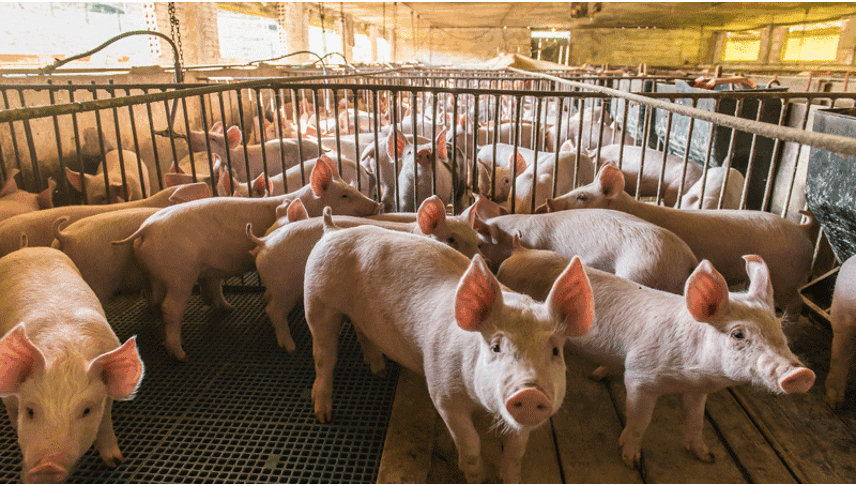Register for free and continue reading
Join our growing army of changemakers and get unlimited access to our premium content

That is the headline finding of new research from think-tank Planet Tracker, which analysed the environmental impact of more than 400,000 companies in the food value chain and the level of private finance they receive to create recommendations for financing food system transformation.
Explaining the need for the report, Planet tracker’s head of food and land use Peter Elwin said: “The global food system generates nearly 20% of the world’s GDP, however it is inherently fragile and no longer fit for purpose.
“From conception in the farm to consumption on the fork, the global food system accounts for a third of greenhouse gas emissions and endangers 86% of species on the IUCN Red List. Even as food reaches the end of the chain, one third is lost or wasted.”
The new report outlines six priority areas of engagement and investment for transforming food systems, solving interlinked issues including nature loss, hunger and climate impact. Planet Tracker estimates that, if implemented in full, they could cut the annual global greenhouse gas footprint of the food system by 60%. It is also foreseeing total annual economic benefits of $1.5trn.
Improving traceability in supply chains is the first key focus area. Without better visibility, investors will continue to support companies lagging behind in efforts to tackle food waste, end deforestation and drive decarbonisation – three of the other focus areas from the Planet Tracker report.
On food waste, the report recommends an uplift in finance to actions that facilitate a halving of food waste by 2030, in line with the UN’s Sustainable Development Goals. It notes that, in some developed countries, the bulk of food waste happens at the consumer level, whereas waste at the retail and supply chain level is more common in the global south – meaning that tailored approaches are needed.
On deforestation, the report urges investors to publicly commit to ensuring zero deforestation risk in their portfolios, with commodity-specific action plans. It outlines how, without this, investors cannot credibly be aligning with the transition to net-zero, given the importance of forests in carbon sequestration.
Regarding emissions reductions, the report highlights how methane is a more potent yet shorter-lived greenhouse gas than CO2. As such, reducing methane dramaticically needs to be a priority for agriculture, the world’s second-largest source of methane behind fossil fuels.
Planet Tracker is recommending that investors and other sources of private finance set a target to reduce agricultural methane emissions by 45% by 2030. Achieving this level of reduction, the report states, will require a mix of engagement and divestment with meat, dairy and aquaculture firms. Some firms can be engaged to improve disclosure, but, ultimately, most investors with high investment in this space will need to move some of their capital to alternative proteins.
Investment in alternative proteins is another of the six focus areas detailed in the report. As well as shifting individual portfolios and setting clear targets for doing so, the report sets out the role of private finance in engaging with policymakers to encourage regulatory frameworks to support the alternative proteins sector.
Regenerative farming focus
The final focus area noted by Planet Tracker is increasing investment in regenerative farming, to the point that it scales across the whole global agricultural system.
Investors are encouraged to engage with investee companies to push them to trial and scale techniques that regenerate soil, water and nature – and to establish strong due diligence processes to ensure regenerative practices are genuine. They should also reduce holdings of, or loans to, agricultural firms without a clear plan for regenerative agricultural techniques.
While regenerative agriculture has become something of buzzword, and is now backed by a number of large businesses including Danone, PepsiCo and McCain Foods, a new report from Bankers for Net-Zero this week has warned that it is still only receiving a tiny fraction of overall agriculture finance from both public and private sources.
Barriers to uptake, the report outlines, include the need to inform and upskill farmers; a lack of codes and standards to enable finance to flow; and data gaps. The report recommends the creation of government grants for regenerative farming coupled with a plan to phase-down finance for fossil-based agrichemicals, plus collaboration between government, farmers and other agricultural players to share knowledge.
“Witnessing first-hand the benefits – financial and environmental – of regenerative or agroecological practices can minimise risk perception in farmers hesitant to implement such practices themselves,” the report notes, on the knowledge-sharing piece.
The report also recommends the creation of a pre-competitive forum for financiers and firms to come together to align on greenhouse gas measurement and reporting, to help rapidly improve data.


Please login or Register to leave a comment.